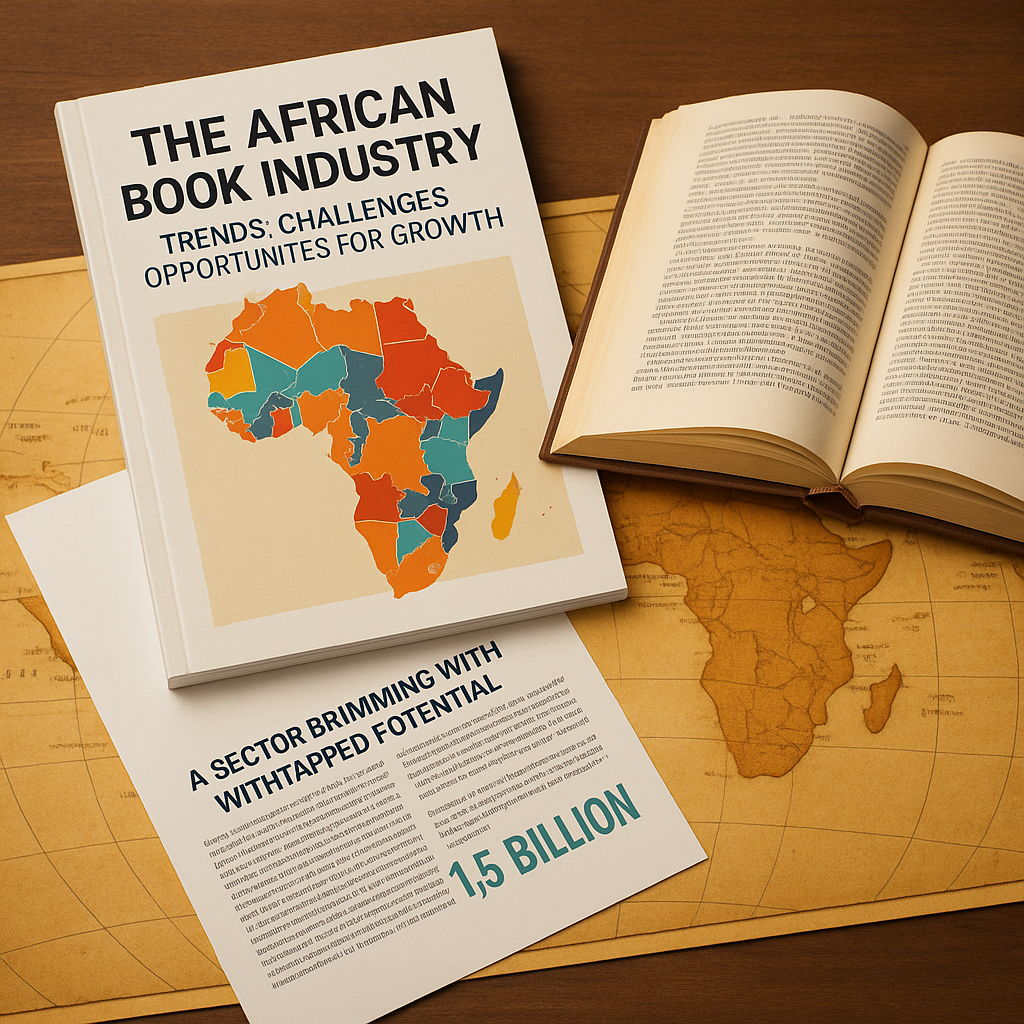UNESCO Launches Report to Unlock $18.5B Potential of Africa’s Book Industry
Despite Africa's cultural and linguistic diversity, the continent currently accounts for only 5.4% of global publishing revenues.

UNESCO has unveiled a landmark report titled "The African Book Industry: Trends, Challenges & Opportunities for Growth," marking the first-ever continent-wide mapping of Africa’s publishing sector. The comprehensive analysis sheds light on the vibrant literary talent, emerging digital markets, and immense untapped economic potential of the African book industry. If fully developed, the sector could yield up to US$18.5 billion in annual revenues, supporting cultural empowerment, educational transformation, and job creation across the continent.
A Sector Rich in Potential Yet Lacking Policy Support
Despite Africa's cultural and linguistic diversity, the continent currently accounts for only 5.4% of global publishing revenues. The report reveals an urgent need for policy reform and strategic investment. A glaring trade imbalance exists: in 2023, Africa imported books worth an estimated US$597 million while exporting just US$81 million. More strikingly, 90% of African countries lack dedicated book industry legislation beyond basic copyright and legal deposit laws.
UNESCO argues that the continent holds all the necessary ingredients to build a globally competitive book sector—talent, a youthful and growing population, and increasingly accessible digital platforms. However, without targeted legal, institutional, and market interventions, this potential remains largely dormant.
Literary Excellence on the Rise
Africa’s literary influence continues to grow internationally. In a historic sweep in 2021, African authors won all three of the world’s most prestigious literary awards:
-
The Nobel Prize for Literature went to Abdulrazak Gurnah of Tanzania,
-
The Prix Goncourt was awarded to Mohamed Mbougar Sarr of Senegal,
-
And Damon Galgut of South Africa won the Booker Prize.
These achievements signal a rising global appetite for African voices and narratives—but they also underscore the importance of nurturing publishing ecosystems that can support, promote, and export homegrown talent more effectively.
Digital Innovation Bridges Infrastructure Gaps
With only one bookshop per 116,000 people and one public library per 189,000, traditional access to books remains scarce in much of Africa. Yet digital innovation is rapidly transforming access. Platforms such as Snapplify and AkooBooks are expanding e-book and audiobook availability, making literature and educational content accessible even in remote areas.
UNESCO’s report emphasizes that digital solutions must be integrated into national strategies to modernize publishing and reach new readers—especially youth—who represent the largest and most dynamic demographic in Africa.
A Flourishing Festival and Cultural Scene
Africa’s literary vibrancy is not confined to bookshelves. The continent hosts more than 270 book festivals and fairs annually, supported by over 200 professional associations. These events serve as crucial nodes for public engagement, publishing partnerships, and cross-cultural exchange.
UNESCO has championed several of these milestones, notably designating Conakry (2017), Accra (2023), and Rabat (2026) as World Book Capitals. These honors have galvanized national reading campaigns, empowered young readers, and encouraged investment in the creative economy. The agency has also integrated multiple African cities into its Creative Cities of Literature Network, further boosting global visibility for local publishing ecosystems.
The Roadmap for Reform: Three Pillars of Action
To harness the full economic and cultural power of Africa’s book industry, UNESCO identifies three key intervention areas:
-
Strengthening Legal and Institutional Frameworks
-
Introduce modern book industry legislation;
-
Revise and enforce copyright and licensing laws;
-
Establish National Book Development Councils and domestic ISBN agencies.
-
-
Building a Strong Domestic Market
-
Integrate publishing into industrial strategies;
-
Support local publishers through procurement reforms, especially in educational materials;
-
Offer export incentives and regulate foreign investment to safeguard cultural sovereignty.
-
-
Expanding Readership and Access
-
Invest in public libraries and digital publishing infrastructure;
-
Launch national reading campaigns;
-
Conduct regular surveys to generate reading culture data for evidence-based policymaking.
-
Creative Industries as Catalysts for Development
This report is part of a broader series of UNESCO studies aimed at promoting Africa’s creative economy, initiated by Director-General Audrey Azoulay. It follows groundbreaking analyses on the African Film Industry (2021) and the African Fashion Sector (2023). These efforts align with the UNESCO Convention on the Protection and Promotion of the Diversity of Cultural Expressions, which celebrates its 20th anniversary this year.
By mapping the book sector’s challenges and opportunities, UNESCO is equipping African governments and stakeholders with the tools needed to foster cultural expression, expand economic opportunity, and promote inclusive development.
A New Chapter for African Publishing
UNESCO’s historic mapping represents a turning point for Africa’s publishing landscape. With strategic reforms, digital acceleration, and strong institutional support, the African book industry can write a new chapter—one that not only amplifies African stories but also powers economic transformation across the continent.










